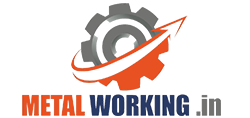Ace Micromatic: 7 Major Impacts Industry 4.0 has on the Manufacturing Industry
Industrial revolutions in the past have brought massive changes in manufacturing. After three major industrial revolutions, the fourth one has arrived and has the potential to intensify the manufacturing process even further with the help of technology and the internet. Industry 4.0 leverages concepts like IoT, AI, and machine learning to expand and enhance the manufacturing field.
Machining is also a major area with the most impact on manufacturing itself. Machining operations are becoming a more connected activity just like all the other types of manufacturing.
It is predicted that connected processes are going to completely take over conventional machines or will be synced with legacy systems to ensure the accessibility of massive streams of data./p>
Then the data collected from these systems will be analyzed to improve on current operations or even to create new and more efficient processes.
Eventually, with the help of Industry 4.0, human interference will be limited thereby allowing the distribution of labor on the factory to other or necessary areas.
But with the integration of IoT and Industry 4.0 solutions into manufacturing, processes are going to be faster leading to better productivity and efficiency.
Here is how:
1. Real control over factory:

Does ownership mean real control? Not really. Having control over every aspect of your factory might seem like be a tiresome process but it is beneficial in many ways. It isn’t about micromanagement but rather setting up a system that records important data across the plant. This can range from operator schedule, maintenance request, inspection data, OEE, downtime workflow, production schedule, and more. Data is an asset, small or big. So when the requirement arises having it ready will be very helpful in making better decisions and to improve efficiency.
2. Transparent processes
In manufacturing, most times, processes are not well accounted for. This means that when something goes wrong, identifying the problem area in the chain is a hassle. When a clear picture of the processes from raw material to dispatch is recorded, this gives better control and accountability thereby helping fix problem areas.
3. Increasing shop-floor production and profits
With good tracking software driving productivity will be an easy task. Having advanced machine production parameters like OEE, part count, cycle count, machine stoppage and financial information like realized machine hour rate and true cost per component can help managers catch problems and make the right decisions that boost productivity. This can be finding the root cause for stoppages, slow cycle counts low output, etc., through the data available and making the change to fix it.

4. Better quality output
Manufacturers have a mandatory quality assurance process in place to check the goods or components for defects or small errors. But the problem with many of these processes, however, is that they can cause delays in production. Quality assurance is a critical matter in production, it has more to with the machine than one might assume. Since they are not taken seriously and not carried out regularly, this leads to many products made in less than ideal conditions.
Essentially, the data is given a more detailed profile of operations and introduces a real-time element to QA inspections.
5. Saving energy
The industrial manufacturing segment takes up 40% of the power demand in India. But how much of it is being used efficiently? IoT sensors and platforms collect data from the machine and help operators & owners operate machines better. Smart meters can be put in place to manage the flow of energy, efficiently. The instrument can be automated or powered appropriately to reduce their impact on resources and the environment, simultaneously closing the bridge between lean manufacturing and conventional manufacturing.
6. Preventive maintenance
Industry 4.0 introduces an entirely new opportunity in the form of preventive maintenance. Preventive maintenance is the routine upkeep of machines and equipment to keep them in optimum conditions at all times to avoid unplanned breakdowns or failures. With a strong stream of performance and real-time data, maintenance persons can prepare better for equipment malfunctions or errors. Problems can be identified early and fixed so that regular operation is not interrupted.
Catered just for this AmiT, an AceMicromatic group company offers MachineConnect™ a solution that provides alarms, preventive and predictive maintenance, and Smart Machine interfaces that help take preventive decisions.
7. Better human-machine interfaces

Manufacturing companies will be turned into factories of the future with IoT. Thanks to Industry 4.0 robots, humans, and machines can work together in a smooth flowing environment. Human-enabled interfaces, meanwhile, require some work to be massively improved. But when properly implemented operators will be able to remotely operate the instruments and deliver commands on the go. This means real-time alerts and insights will be given to operators, no matter where they are. For example, some machines from the AMG come with robotics, cell automation, and more for better productivity. The only job of the operator involves loading the component at the beginning. Also, with technologies that offer Process parameters monitoring, real-time energy and sensors data will be integrated into a prediction framework so people can watch how their plants are working live, remotely.
Before interaction with machines was limited to console and part machining but now the exchange of data on how the machine is performing will allow the operator to perform better.
With these advantages, steadily, the manufacturing industry is changing for the better, creating a better and more reliable system for production in place.
This content was originally published on the Ace Micromatic website.

